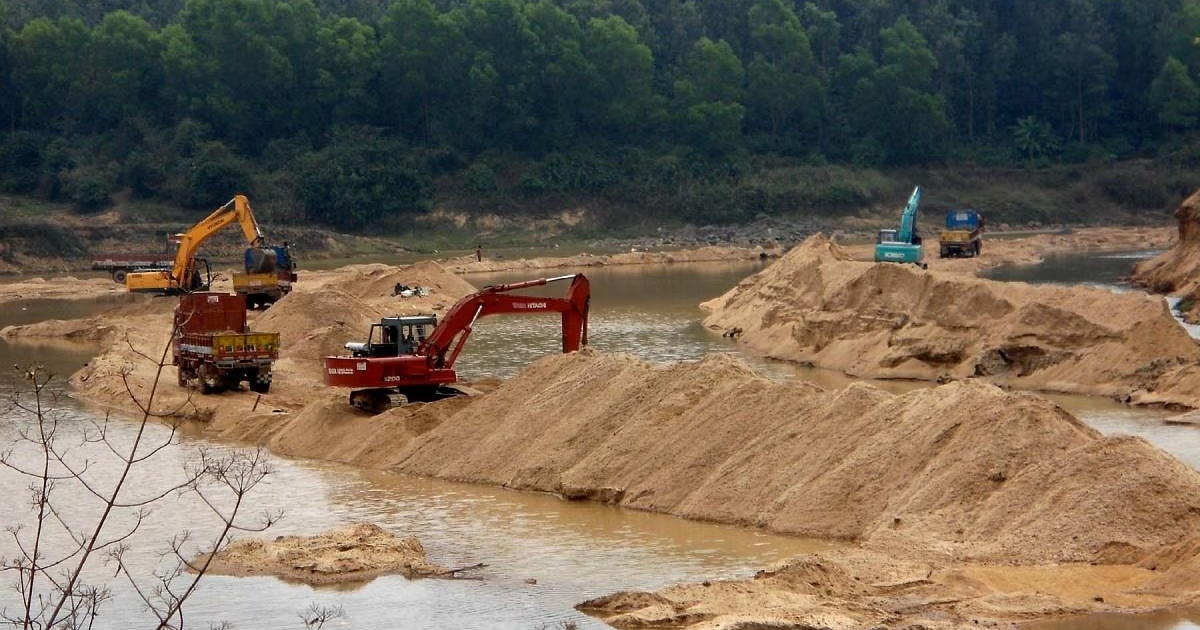Maharashtra Reverses Sand Policy After ₹700 Crore Loss, Proposes Auction-Based System
Facing massive revenue losses and widespread criticism, the Maharashtra government has scrapped its controversial sand depot policy, introduced in 2023, and is now seeking public suggestions to draft a more effective framework. The policy’s failure has prompted the government to revert to an auction-based sand mining system, aiming to curb illegal mining activities while boosting state revenue.
The sand depot policy was introduced with the hope of streamlining sand distribution across Maharashtra. However, it backfired spectacularly. According to government sources, while the earlier auction system generated a robust annual income of around ₹3,000 crore, the new policy failed to produce any revenue. Worse still, it forced the state to spend ₹700 crore from its own funds, dealing a significant blow to Maharashtra’s finances. One of the critical reasons behind the policy’s downfall was its deviation from the Mines and Minerals (Development and Regulation) Act, 2014, which mandates auctioning of minor minerals like sand. The Act limits the state’s powers, allowing it to frame rules but not override the core requirement for transparent auctions. This legal conflict, coupled with administrative inefficiencies, led to the policy’s collapse.
Sand mining has long been a contentious issue in Maharashtra, not just due to environmental concerns but also because of the proliferation of sand mafias. These local syndicates, often with political backing, have turned sand mining into a multi-crore illegal business. The nexus between local leaders and sand mafias has been openly criticised, with incidents like the one in Beed district grabbing headlines. In this case, BJP MLA Suresh Dhas alleged rampant corruption and mafia involvement in sand mining, highlighting the extent of the problem. The failed sand depot policy inadvertently strengthened such illegal networks, as the lack of a proper regulatory framework created loopholes easily exploited by powerful players. In response to these challenges, the Maharashtra government is now drafting a new sand mining policy that will reintroduce the auction system. Under the proposed framework, successful bidders will be granted sand mining rights for three years, ensuring more accountability and transparency.
To foster public participation, the government has invited suggestions and objections from citizens. People can submit their feedback until 7 February 2025 through the official website https://mahakhanij.maharashtra.gov.in or via email at deskkha1-sandpolicy@mah.gov.in. Recognising the growing demand for sand in construction and the environmental toll of traditional mining, the state also plans to promote the use of artificial sand. It will soon be mandatory for government departments like the Public Works Department (PWD) and the Water Resources Department (WRD) to incorporate at least 20% artificial sand in their construction projects. This move aims to reduce dependency on natural sand, curb illegal mining, and promote sustainable construction practices.
The rollback of the sand depot policy is not just a course correction but also a reflection of the government’s attempt to balance economic, legal, and environmental priorities. While the reintroduction of auctions may help plug revenue leaks and curb illegal activities, the success of the new policy will ultimately depend on effective implementation and public participation. As Maharashtra navigates these reforms, the hope is that the new sand mining policy will promote transparency, reduce the influence of sand mafias, and support sustainable development across the state.




